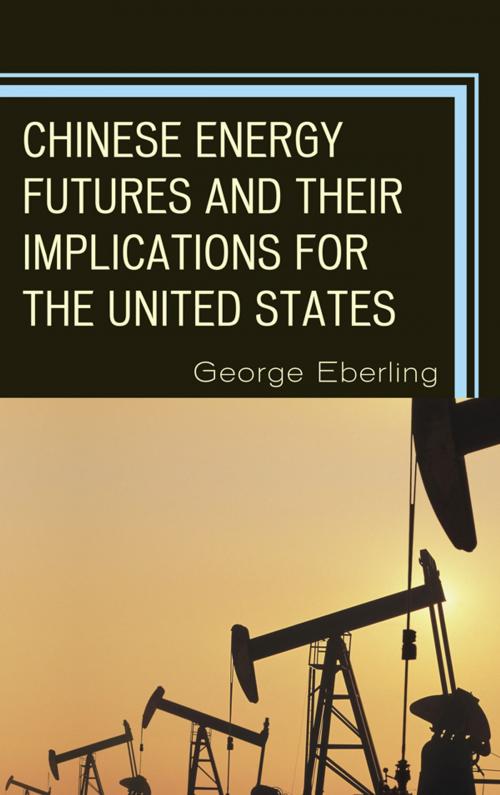Chinese Energy Futures and Their Implications for the United States
Nonfiction, Science & Nature, Technology, Power Resources, Social & Cultural Studies, Political Science, Politics, Economic Conditions, International, International Relations| Author: | George G. Eberling | ISBN: | 9780739165706 |
| Publisher: | Lexington Books | Publication: | November 16, 2011 |
| Imprint: | Lexington Books | Language: | English |
| Author: | George G. Eberling |
| ISBN: | 9780739165706 |
| Publisher: | Lexington Books |
| Publication: | November 16, 2011 |
| Imprint: | Lexington Books |
| Language: | English |
China's rise in the global arena is undeniably altering the global status quo. Its rise is closely linked to and reflected in its rising dependence on imported oil, adroit soft power, economic prowess and corresponding impressive economic growth, its military modernization, and its strategic engagement of the world as an alternative model of political and economic development. As the status quo changes, the United States theoretically becomes less influential politically, economically, and militarily, because China is skillfully harnessing and strategically exercising the elements of national power to acquire scarce oil energy resources in the Near East, Western Hemisphere, and Sub-Saharan Africa.
Chinese Energy Futures and Their Implications for the United States, by George Eberling, examines how Chinese oil energy specifically will shape future Sino-American relations under conditions of dependency and non-dependency, and whether competition or cooperation for scarce energy resources will result. Eberling uses both scenario analysis and the PRINCE method to examine three possible Chinese oil energy futures: Competitive Dependency, Competitive Surplus, and Cooperative Surplus. Chinese Energy Futures also discusses and evaluates the strategic implications of these scenarios with respect to the United States.
China's rise in the global arena is undeniably altering the global status quo. Its rise is closely linked to and reflected in its rising dependence on imported oil, adroit soft power, economic prowess and corresponding impressive economic growth, its military modernization, and its strategic engagement of the world as an alternative model of political and economic development. As the status quo changes, the United States theoretically becomes less influential politically, economically, and militarily, because China is skillfully harnessing and strategically exercising the elements of national power to acquire scarce oil energy resources in the Near East, Western Hemisphere, and Sub-Saharan Africa.
Chinese Energy Futures and Their Implications for the United States, by George Eberling, examines how Chinese oil energy specifically will shape future Sino-American relations under conditions of dependency and non-dependency, and whether competition or cooperation for scarce energy resources will result. Eberling uses both scenario analysis and the PRINCE method to examine three possible Chinese oil energy futures: Competitive Dependency, Competitive Surplus, and Cooperative Surplus. Chinese Energy Futures also discusses and evaluates the strategic implications of these scenarios with respect to the United States.















